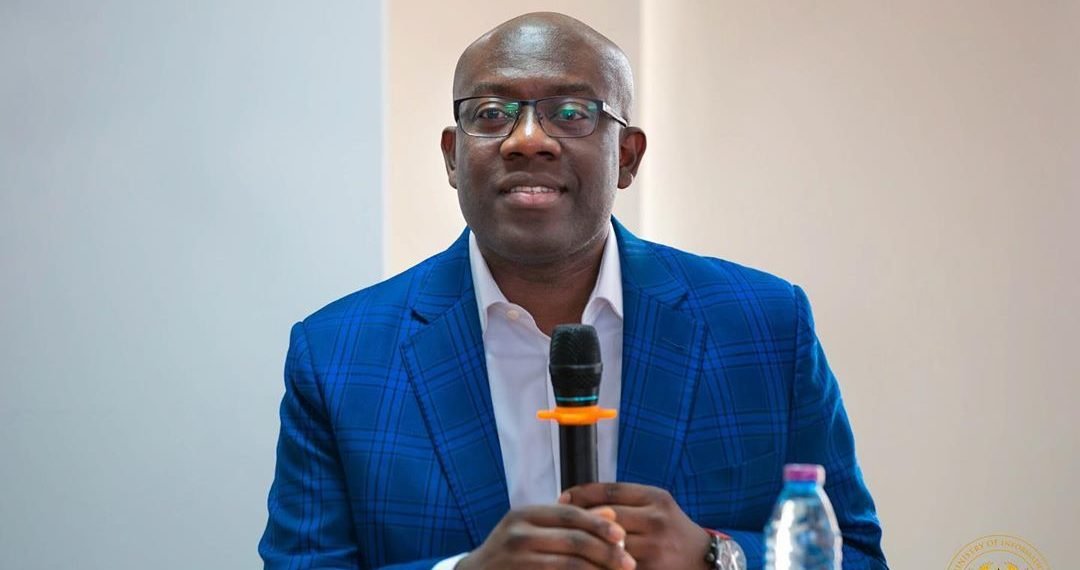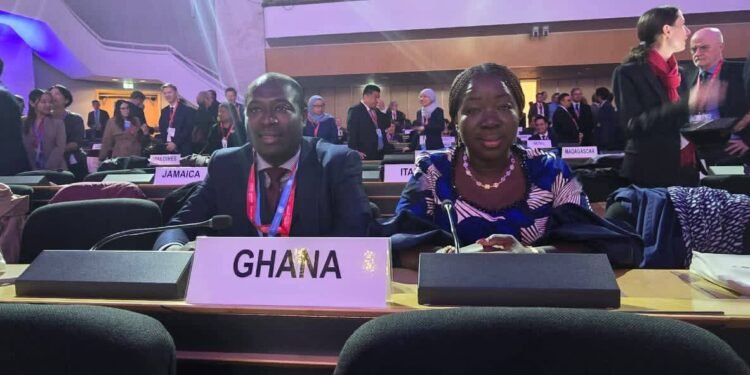Information Minister, Kojo Oppong Nkrumah, has called on the media to use more of the Right To Information (RTI) Act and less of speculations and hearsays in the country.
According to him, there is a sharp decline in the use of RTI Act to access public information. Mr Nkrumah explained that it is necessary for media houses to effectively resort to the use of RTI Act to ensure optimum delivery in the dispensation of their duties.
“To our colleagues in the media, we want to encourage a lot more use of the RTI Act and a lot less resort to speculation and hearsay. The RTI Act grants you to, by law, get access to information for purposes of media work as well. For all the amount of money that has been spent, all the hours of executive and parliamentary times spent in legislating the RTI, it is a bit disappointing that even in subsequent years, these are the very few numbers of requests that have come through. I encourage various stakeholders to employ the Act to access information”.
Kojo Oppong Nkrumah
Speaking on the floor of parliament today, March 15, 2022, the Information minister mentioned that government and relevant agencies “need to do a lot of public education and advocacy to get a lot more people aware that the RTI Act is in full operation” and that one can now access it. He revealed that for the year 2020, some seventy-two applications were granted, six were rejected, three were transferred, another three were referred, and one was deferred.
“For 2021, 95 applications were granted, seven rejected, six transferred, 17 referred, two deferred and two reviewed. For the year 2022, so far, out of the 10 that have been received, eight have already been granted, one has been rejected, and one has been referred to the appropriate ministry, department or agency to respond to it”.
Kojo Oppong Nkrumah
Academic communities urged to apply for information
In his bid to make the RTI usage popular, the Ofoase-Ayirebi legislator called on students and educational institutions to equally make effective use of the RTI Act for their projects and dissertations. He emphasized that the RTI offers them the “legal cover” to apply for information from public institutions for purposes of academic exercises.
“May I take the advantage to reach out to the entire country, particularly the academic community, to make use of the Act, to apply for information from public institutions. Many of our young people have complained about difficulties getting access to information when preparing their dissertations”.
Kojo Oppong Nkrumah
Subsequently, Mr Nkrumah expressed that following the operationalization of the Right To Information (RTI) Act, requests for information from public institutions have increased. He noted that the majority of requests that came in focused on the economy.
In 2021, he indicated that 51 of the requests were focused on the economic sector, 29 were on the infrastructure sector, 27 were on the administrative sector and 19 on the social services sector.
“24 of the request were received for the ministries and agencies related to the Finance sector, 22 of them were on public safety, 21 of them were on the social services sector, 10 were on the administrative sector that is the Attorney General’s department, Information Ministry, and other administrative departments. 8 of them were focused on the infrastructural sector, that is, roads and related sectors”.
Kojo Oppong Nkrumah
READ ALSO: IIGh To Launch A Report And Dialogue On The State Of Impact Investing In Ghana























